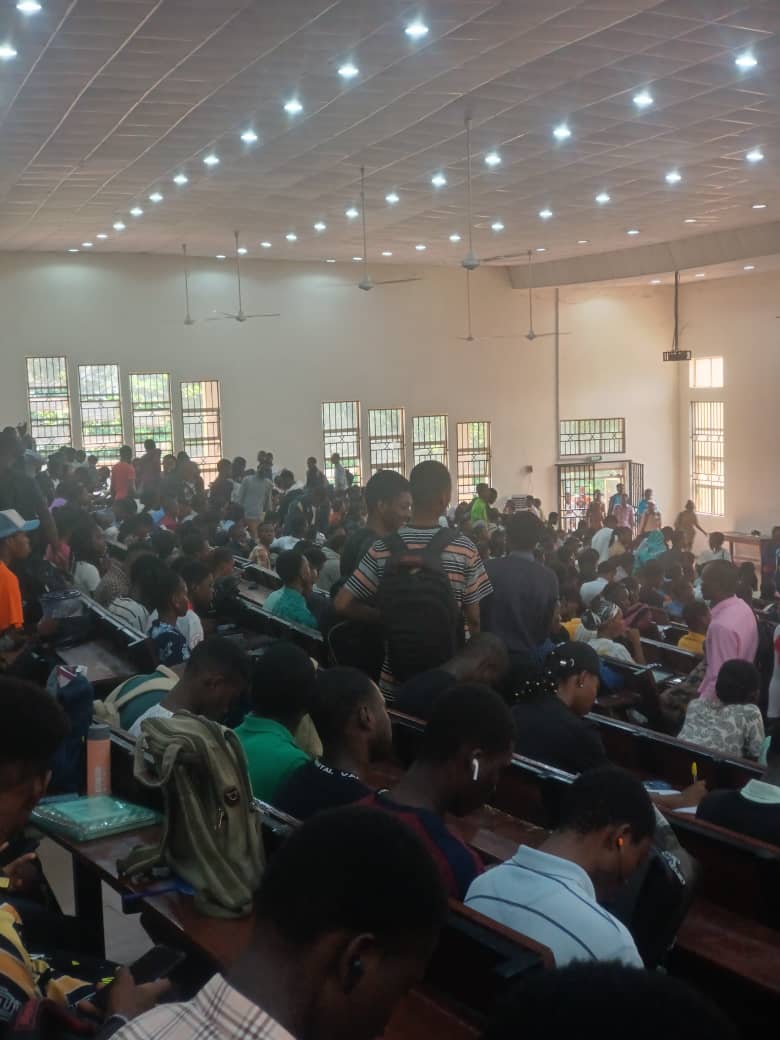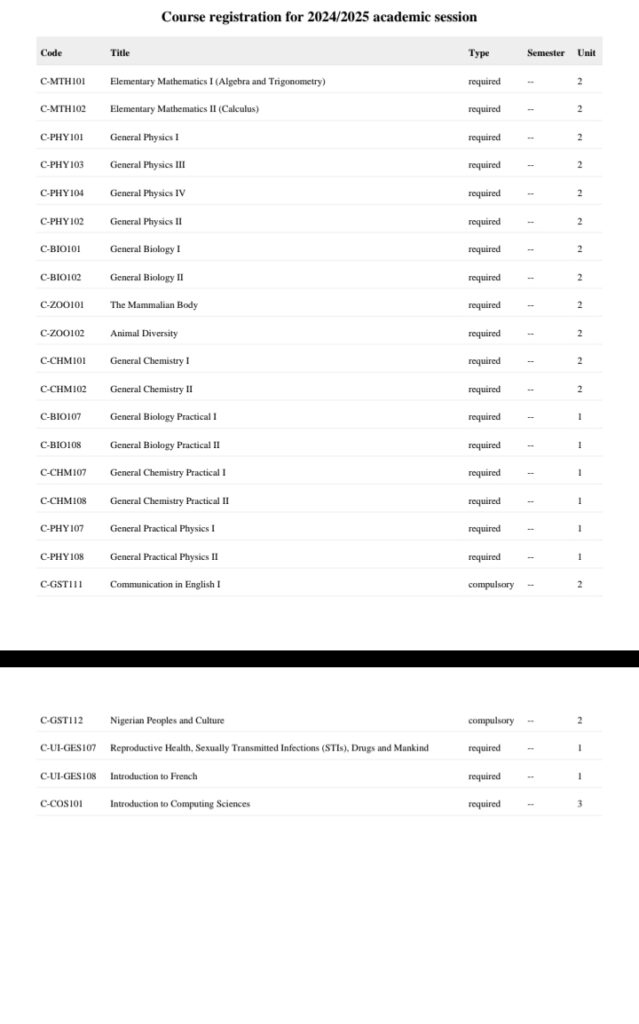VOX POP: 100-level UIMSAites Discuss Curriculum Changes

Curriculum changes are often implemented to keep educational standards up-to-date, ensuring students receive relevant and competitive training. However, when modifications are introduced abruptly or without proper communication, they can lead to frustration rather than improvement. This academic session, the University of Ibadan (UI) introduced a revised curriculum for 100-level students according to the National Universities Commission (NUC) Core Curriculum and Minimum Academic Standards (CCMAS)—a move intended to modernize the program but one that has left many students disoriented and overwhelmed.
The updated curriculum for first-year medical students included several adjustments including the alteration of course codes for uniformity; addition of new courses such as Mathematics, Biology and Computer science, and new GST courses. Mathematics poses a significant challenge because the last time some students studied Maths was during preparation for their O’ Level examinations. Those who had to rewrite the Unified Tertiary Matriculation Examination (UTME) may have not studied Mathematics in over a year before the curriculum adjustment.

An unexpected change
One of the most pressing concerns among students is the timing of the changes. This new curriculum was implemented four weeks after physical resumption. For clarity, the 100-level students had been attending online classes and the initial weeks of on-campus lectures under the old syllabus, studying the previously normal Chemistry, Physics, and Zoology courses before the new curriculum was rolled out.
The sudden shift has led to disorganization in lectures, as some courses were added several weeks into the semester, confusion over course registration as no communication was made to the class as to the relevance of the change, and increased academic pressure, with students now juggling unfamiliar subjects on top of an already packed and shortened schedule.
The changes, although made with good intentions, have left students feeling burdened rather than empowered. A common sentiment is that the transition could have been smoother with earlier communication. One student lamented, “There are too many changes at once. It would have been bearable if they had informed us before resumption. It gave unnecessary burden and unorganised classes.” Another student added that they were not adequately informed ahead of time about the structure or expectations of the new courses and the lack of communication has contributed to stress and confusion.
The late introduction of new courses has also raised concerns about academic performance. Some students worry about the impact on their GPAs, given the additional workload, late implementation of the new curriculum, non-existent adjustment period and shortened academic calendar. One of the 100 level student expressed worries about his academic performance for this semester. “I hate to admit it, but it may affect my academic performance. At the end of the day, we’ll still have those with 5.0.”Are the changes necessary? While these changes were likely designed to enhance the curriculum, such as the inclusion of Computer Science, which aligns with the increasing digitization in the world today—many students question their immediate relevance. One student, Abdulbasit, expressed skepticism about the new additions stating that he does not see the purpose of any of the added courses, especially MTH 102, adding that inclusion of a statistics course would have been better. Teniola of the 2k28 class also noted that she currently doesn’t find the new courses particularly useful as the structure of the courses lack direct relevance to their training as doctors and feels more burdensome than beneficial.
To enjoy 100-level or not to?
“100-level is the most relaxed year in medical school. Enjoy it while you can.” This saying lingers like an old legend carried from one set to the next and the rationale is not far-fetched—academic demands astronomically increase in medical school. No doubt the members of 2k28 who have interacted with their senior colleagues would have heard something similar to this. One student remarked that despite these claims from his senior colleagues in the 2k27 class, the workload makes it difficult to enjoy this semester, although he’s hopes that he’ll be better adapted in the second semester. Another student who had looked forward to taking advantage of 100-level to explore extracurriculars and develop beyond academics points out that the increased workload and unfamiliar content leaves little room for other engagements.
Conclusion
From academic demands to personal well-being and extra-curricular activities, these changes will have a ripple effect on students. As the session progresses, the full implications of these adjustments will become clearer. For many, the major concern is academic performance; students aspire to do well in school and their parents are also expecting great grades. The students will now have to adapt with the unfamiliar courses in an already shortened academic calendar as soon as possible, as their examinations start in less than a month.
Chisom Obah





I as a person, am in total support of Teniola and Abdulbasit.
The addition of computer science to the curriculum is still arguably acceptable but what seems unimportant but has being made compulsory here is the Math: it’s only a semester course, it’s also as clear as day
that Math is not a needed course in this path of studying.
The most annoying aspect of all was the late arrival of information concerning the addition of this courses. I think it causes more harm than benefits.